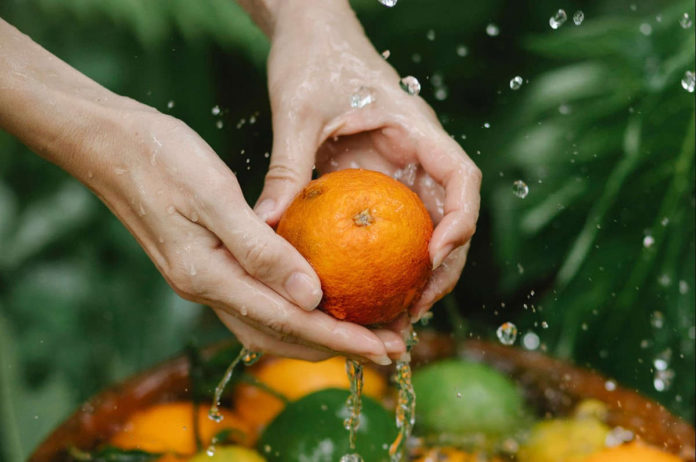Dear EarthTalk: What’s the most effective way to remove pesticide residues from fruits and vegetables that I buy at the supermarket? —R.L.J., Kansas City, KS
For many decades now, pesticides have been a vital tool for farmers to ensure that their harvests aren’t overgrown by weeds or eaten by pests. As a result, pesticides remain prevalent today, in spite of the many health risks that pesticide residues still pose to people consuming fruits and vegetables. It’s worth noting that the U.S. Food and Drug Administration (FDA) has placed limits on the amount of pesticide residue found on produce—called “tolerances”—to ensure that people will most likely not be impacted by harmful “persistent organic pollutants” (POPs) such as glyphosate and atrazine. However, it’s still important to make individual efforts to clean produce to further protect your personal health and safety.
A recent report from the American Chemical Society analyzed data provided by the U.S. Department of Agriculture (USDA) and found that 20 percent of 59 different produce categories posed significant health risks to consumers despite current pesticide limits. The researchers developed new methods for finding and removing traces of pesticides from produce, as they found that traditional methods of cleaning produce were insufficient. Most notably, the report posits that pesticides go beyond the produce’s surface to leach into the food, meaning that washing may not be as effective. Further research is needed to determine the full risks and implications of current pesticide limits. Regardless, all produce should be cleaned thoroughly before consumption.
There are varied opinions on the best methods for removing pesticide residues from produce, and no method is 100 percent effective. Rinsing produce is somewhat helpful for cleaning off dirt and germs, but soaking their fruits and vegetables in warm vinegar or salt solutions may be better; however, some sources claim that exposure to these solutions may allow chemicals to form more complex, equally dangerous chemical compounds, so always follow soaking with thorough rinsing. Finally, peeling or boiling produce can be highly effective in removing residues, though you will suffer a loss of nutrients.
Of course, the only way to significantly reduce your exposure to food-borne synthetic chemicals is by buying organic, as organic foods are not grown with the assistance of hazardous pesticides. You might have to pay a little more, but isn’t your health and peace of mind worth it?
CONTACTS
- National Pesticide Information Center’s Advice For Removing Pesticide Residue: npic.orst.edu/faq/fruitwash.html
- Recent Scientific Report Finds That Recommended Residue Limits Still Too High: www.theguardian.com/environment/article/2024/aug/08/clean-fruit-vegetables-pesticides
- How To Remove Pesticide Residues From Your Produce: www.canr.msu.edu/news/how-to-series-removing-pesticide-residue
EarthTalk® is produced by Roddy Scheer & Doug Moss for the 501(c)3 nonprofit EarthTalk. See more at emagazine.com. To donate, visit earthtalk.org. Send questions to: qu******@*******lk.org.




